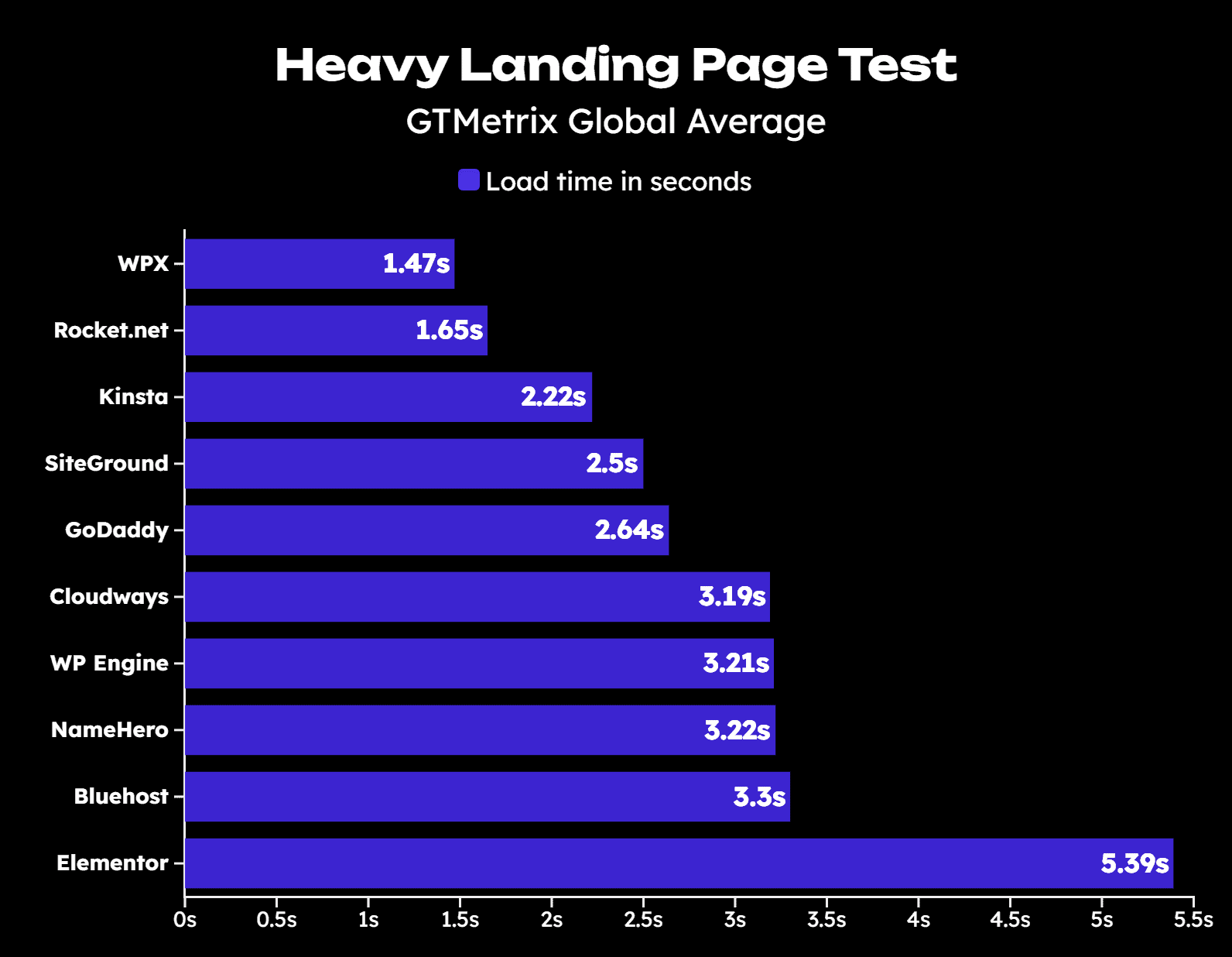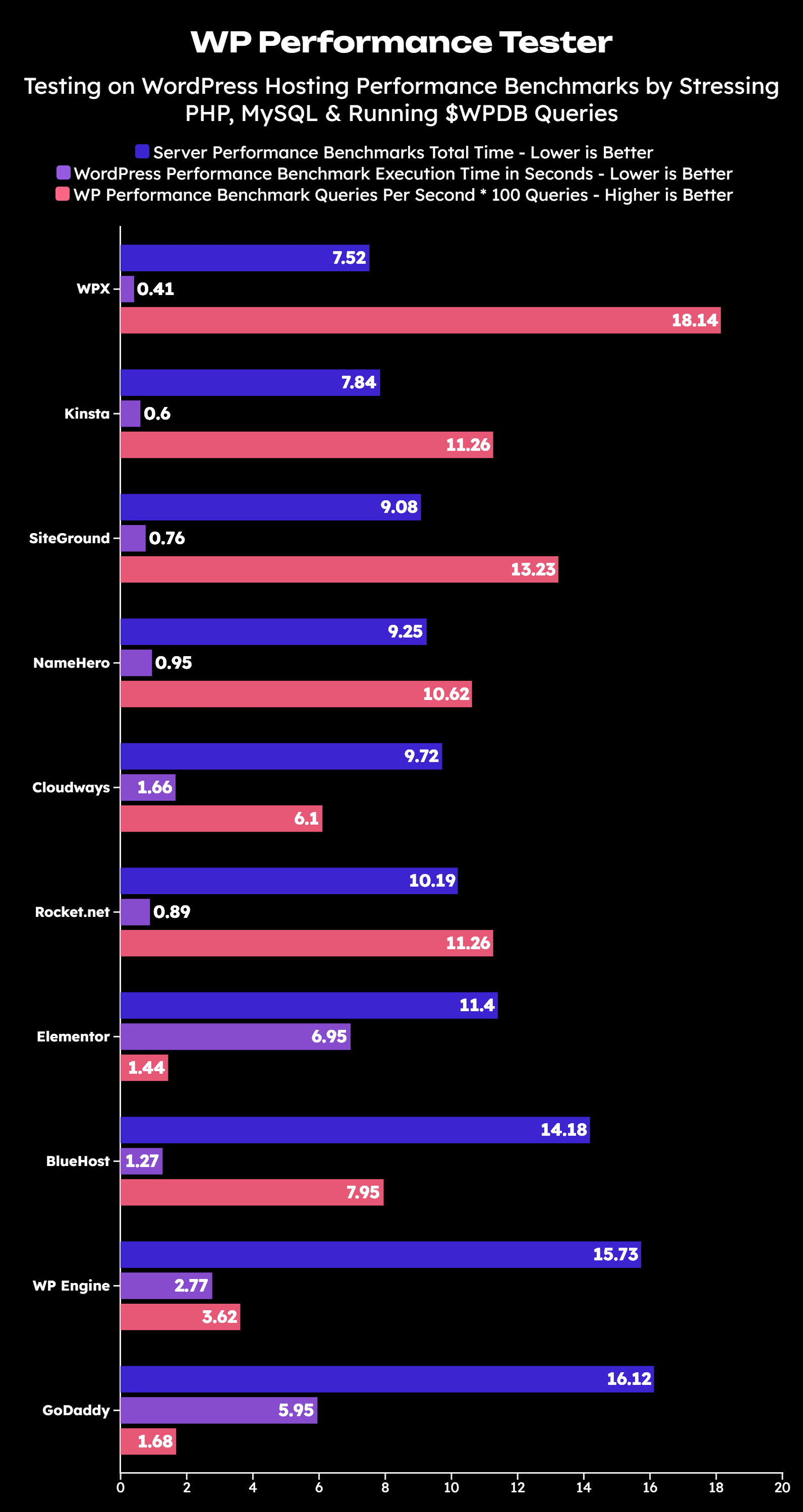Introduction
Choosing between SiteGround and GoDaddy might not be as easy as one would expect. You'd have to pass the two through thorough scrutiny since they possess some really hard-to-distinguish features. Clearly, if these features were to form the basis of your decision, you'd have to activate your eagle eye for you to make the right choice. Luckily, there are also several obvious differences between these two hosts, and these are likely to speed up your decision-making if they matter to you most.
Before we get to the finer details of these two hosts, let's first get an overview of each.
SiteGround Overview
SiteGround is a well-established web hosting company known for its reliable and fast hosting services. Founded in 2004, it offers a range of hosting options, including shared, cloud, and dedicated hosting. SiteGround is particularly renowned for its exceptional customer support, with a dedicated team that provides assistance 24/7. They also offer a user-friendly website builder and numerous developer-friendly tools.
Overall, SiteGround is a dependable hosting provider suitable for businesses and individuals seeking a blend of top-notch performance, excellent customer support, and feature-rich hosting solutions. Their commitment to quality and reliability has made them a popular choice in the web hosting industry.
GoDaddy Overview
GoDaddy is a renowned internet domain registrar and web hosting company. Founded in 1997, it has grown to become a one-stop shop for individuals and businesses seeking to establish a strong online presence. The company offers a wide range of services, including domain registration, website hosting, website-building tools, and digital marketing solutions. With a user-friendly interface and a vast domain name inventory, GoDaddy makes it easy for users to secure the perfect web address and create a professional website. GoDaddy has established itself as a popular choice for those looking to kickstart their online ventures, thanks to its affordable pricing and extensive suite of online tools and services.
Performance
Website performance is crucial for user satisfaction and SEO rankings. A fast-loading site enhances user experience, reducing bounce rates. Factors like server speed, optimized code, and image compression impact performance. Content Delivery Networks (CDNs) and responsive design also play a role. Regular monitoring and improvements are vital for a successful website.
When buying hosting, therefore, it's important to look into the performance of the potential host. So, if you want to choose between SiteGround and GoDaddy, that's something you've got to consider. But for this review, we've gone a step ahead to conduct several tests and created the graphic below.
How did we come up with the graphic? We created a web page of a heavy landing page with many images. Then we made a copy of the website on the different hosts. We then ran the page through GTMetrix tests for 7 different locations and then calculated the global average for each.
Comparing the two hosts, you can tell that SiteGround was a better performer, with the page loading in 2.5 seconds, while GoDaddy managed 2.64 seconds.
The best performers in the above tests are WPX and Rocket.net, and those are the only two hosts whose performances were below 2 seconds. WPX, the best overall performer in the test, also performed very well in our tests by location, beating all the rest in 5 of the 7 locations. Rocket.net also performed very well across all 7 locations, a good show for a host with a global perspective.
There is more about these hosts. In our well-researched 10 Best WordPress Hosting article, we share a lot more about all the hosts whose services we purchased for the purpose of our test.
Why Performance is Important
Website performance is crucial for several reasons. First, it directly impacts user experience, with faster-loading pages leading to higher engagement and lower bounce rates. Second, search engines like Google prioritize fast-loading sites in their rankings, improving visibility. Slow sites deter potential customers and harm conversions. Additionally, in our mobile-centric world, speedy performance is essential for responsive and accessible design.
In the graphic below, we share the performance of the hosts we tested. In our comments, we'll focus mainly on the two hosts in question, namely, SiteGround and GoDaddy, although we also touch a little bit on WPX and Kinsta.
SiteGround might have its fair share of challenges, but it's been performing well in general. Although it trailed the top two performers, WPX and Kinsta, it came in at number 3 out of the 10 hosts. GoDaddy, on the other hand, came in last, posting the poorest performance under server performance benchmarks total time. So, comparing SiteGround and GoDaddy on this particular metric is very easy, particularly aware that SiteGround won in all three segments of the performance test.
WPX, as we already mentioned, topped the list, with the least server performance benchmarks total time, but also the best in the other two categories - WordPress performance benchmark execution time in seconds and WordPress performance benchmark queries per second. Kinsta, which came in second, also performed very well in the two other metrics, scooping the second position in WordPress performance benchmarks execution time in seconds and position 3 in WordPress performance benchmark queries per second.
More about these hosts is available in our best WordPress hosting review.
Features
SiteGround and GoDaddy are two hosts with quite a sizeable market share. With that kind of clientele, you'd expect that they both have all the standard features every average person would expect in a host. Still, these features differ from one host to another. For example, one host would be using a different storage or caching technology than the other, meaning you'd have to properly understand the difference to make an informed decision.
In this review, we look at a few SiteGround and GoDaddy features, with the confidence that they'll help you make a good choice for a host.
Hosting Features (Critical Performance Features)
We've broken down features into different categories and chosen to separate critical performance features. These are important as they help you make a decision on which host to go for if you, like a majority of users, are keen on stellar performance.
SiteGround Performance Critical Features
While it's already very obvious from the above graphics that SiteGround beat GoDaddy in performance, it's of the essence that we know some of the features responsible for this reality. Well, SiteGround uses SSD storage and caching technology for speedy website loading, which they promise to deliver 5 times the normal speed. Moreover, they've got a custom PHP setup system and a fine-tuned MySQL to speed up performance, including handling a high number of database requests.
GoDaddy Performance Critical Features
GoDaddy prides itself on highly optimized servers that they say would afford their users 40% faster performance. Like many of today's hosts, GoDaddy also uses NVMe SSDs, and they say these give you 7 times throughput boost2, which is fitting for resource-intensive websites. They also use PHP OPCache^ that stores the results of PHP script execution for subsequent loads, also delivering 33% faster response from server queries. GoDaddy also has 10MB/s of input and output.
Backups and Staging
We all understand what backups and staging do to your web development life. If you don't want to lose your website, backups are indispensable. Staging, on the other hand, is very critical when it comes to the web development process. It comes in handy when you introduce new changes, test new features and designs, as well as pushing changes live.
SiteGround has a working backup system, boasting automatic daily backups in all their hosting packages. You also have the option to create backups at your convenience. SiteGround also has one-click staging, although this is limited to their GrowBig and GoGeek hosting plans and specifically for websites built using WordPress.
GoDaddy also has daily backups for all your files, including websites and emails. You can restore these from the past day in just one click, but you also have the option to restore them for as long as 90 days at an additional fee. They also have scheduled and on-demand website backups.
Uptime and Reliability
Hosting a website is unnecessary if it's not consistently online. Who would want their website to experience frequent and elongated downtimes? No one, for sure. Therefore, as you seek to make a choice between SiteGround and GoDaddy, it's important to know how each of them performs under this category.
SiteGround proudly delivers a near-perfect 99.9% uptime. This uptime has been tested and maintained by virtue of their security measures patched on Google Cloud, which is core to their hosting setup. They've got a distributed backup setup and smart WAF just to ensure you get uninterrupted uptime.
GoDaddy, like SiteGround, has a 99.9% service uptime guarantee per month. Should they fail to live up to this guarantee for any month, they advise their users to request a 5% credit for that particular month. This downtime, however, is determined solely by the company experts.
Server Distribution
SiteGround seeks to serve people from across the globe, a focus that has seen them set up 11 data center locations in the US, France, Singapore, Australia, UK, Netherlands, Germany, and Spain. Besides, SiteGround also has 170 global CDN network setups distributed in different geographical locations.
GoDaddy has servers in three locations in North America, Asia, and Europe, with the servers hitting numbers above 37,000 in 9 facilities in Amsterdam, Singapore, and the rest in the USA in the following places - Virginia, Ashburn, Chicago, Los Angeles, Mesa, Scottsdale, Phoenix.
Ease of Use
SiteGround has a straightforward user interface, with its dashboard home containing top-level clickable icons to help you navigate to different services such as domains, hosting, websites, and email marketing. Using the dashboard for the management of services is pretty simple because their service categories are demarcated. And should you have any challenges, they've taken time to create video tutorials to give you traction.
GoDaddy has a straightforward dashboard. The links are very well positioned, making it easy for you to access the products and account settings. They've got quite a beginner-friendly interface that also has several customization options. The colors used in the dashboard are very calm and friendly to the eye, and they've got only two main colors and shades of black.
Customer Support
SiteGround doesn't let down on matters of customer support, attending to customers through phone, chats, and tickets. However, our test of the speed of customer support didn't work quite well since we didn't manage to figure out how to use their chat option. The unfortunate thing is that they responded to our ticket close to a full day later. That said, they're not badly off since many users have expressed their satisfaction with SiteGround's customer support. This was further backed up by our research in which we requested reviews from users on our mailing list, and SiteGround scored 8.56/10.
GoDaddy has a massive number of customers, and to attend to such customers isn't something easy. They've got experts who're available 27/7 to assist customers, and they respond fairly fast. In our customer support speed test, GoDaddy responded in about 5 minutes through a chat that took us through a bot before we could be linked to a customer support person. In addition to the speed of the customer support test, we conducted a survey to establish what real users think, but, unfortunately, the results were appalling, with the host only managing a weak 4.66/10 score.
What Real Users Think
Real user reviews are crucial as they provide authentic insights and feedback, helping prospective customers make informed decisions, build trust in products or services, and drive accountability for businesses to maintain quality and customer satisfaction.
Graphical Representation of Real User Reviews
With that understanding, and taking advantage of our rich mailing list, we reached out to thousands of hosting customers to share with us their thoughts about specific hosts. We used the responses we received from the respondents, who're current customers of these hosts, to create the graphic below.
The above graphic says so much. We sorted the order by overall user experience. And, as you can see, SiteGround beat GoDaddy, with an 8.49/10 score, compared to GoDaddy's under-par score of 4.94/10. On the list, GoDaddy was the worst performer, only managing 5 and above in two categories, namely, pricing and backups.
Although this review is focused on SiteGround and GoDaddy, it doesn't do any harm to touch a little bit on the two topmost winners - Rocket.net and Kinsta. These two hosts performed exemplarily well. Rocket.net, for example, didn't score less than 8.57/10 in any of the segments, and it attained a perfect 10/10 in two categories - site migration from the host and malware cleanup. Although Kinsta lost to Rocket.net in all the categories, it also showed excellent performance, not scoring less than 7/10 in any of the categories. Its best score was in customer support in which it managed a near-perfect 9.53/10.
Sample Real User Reviews
We received quite a number of responses from users, so much so that we can't share it all here. We've created special pages for the reviews we received for each of the hosts. Here, we only share a few to give you a picture of what users say. However, we welcome you to check out the rest of the reviews on the respective host's reviews page as provided in the links shared below under each review set.
But let's look at the samples.
SiteGround Real User Reviews
Very reliable and decent hosting choice. There are some very significant considerations around SSL and their expirations/renewals (as in I do not get prior notification) although they claim this issue is either resolved going forward or is close. There are also limitations around page speed and what all can be achieved. Regardless of what support tells me, all of my sites fail gzip compression testing and that leads to poorer scores.
James Miller
from thinkclarity.com
Full-time Freelancer
11-50 Websites Hosted
North America/Europe/Australia/New Zealand
--------------------------
Siteground is a beginner friendly hosting and cheap price. Customer support is very Good. Performance is average. For blogs and static websites, it's the best one I recommend.
Dhinesh Bala
Full-time Freelancer
4-10 Websites Hosted
Global
--------------------------
Siteground is the best of the cheap hosting tiers. It has an outdated hub, (they have been updating) but if there is a cheap non-managed hosting I would select Siteground. Otherwise you go to the hosted versions. The sites are still fast but I wouldn't go with a big site here.
Alex
Employee/Owner of Agency
11-50 Websites Hosted
North America
Here is a link to more SiteGround real user reviews.
GoDaddy Real User Reviews
Was with GoDaddy for a while but found that the site speed suddenly slowed down and my sites were constantly being flagged as using too many resources despite not having made any major changes. Pricing also seemed expensive compared with other providers.
Rachel Girling
from ragged.design
Full-time Freelancer
4-10 Websites Hosted
Europe
--------------------------
I used them in the past so they might have improved since then, but they were awful. Weak support and too much spam for things I didn't need.
Vicki Kolovou
from digitalgiraffes.com
Employee/Owner of Agency
2-3 Websites Hosted
Global
--------------------------
They've changed their interface so you can't get cPanel (but maybe many hosts are going that direction, I don't know). And every time I talk to a support person, they are always trying to sell me something. It drives me CRAZY! Every so often, though, you can get someone who knows a lot and will help you with your problem rather than try to sell you more services, so if you don't like one support person, you can hang up and call back. I charge my customers extra to have to deal with GoDaddy.
Sandy Connolly
from Super9Studios.com
Part-time Freelancer
2-3 Websites Hosted
North America
You can get more of GoDaddy's real user reviews by following this link.
Conclusion
Looking at our tests, SiteGround won in load speed, server performance, and real user reviews. GoDaddy performed better in the speed of customer support, although this was an anecdotal conclusion since a lot would have to be considered in scientific research.
After considering everything, we can unwaveringly say that SiteGround is the better host. It'd be the number one choice for performance and features. GoDaddy, on the other hand, has more competitive prices. Unfortunately, their performance isn't so exciting.
We've got so much for you in our Best WordPress Hosting article. Feel free to navigate to the article for a more comprehensive view of SiteGround, GoDaddy, and more.



